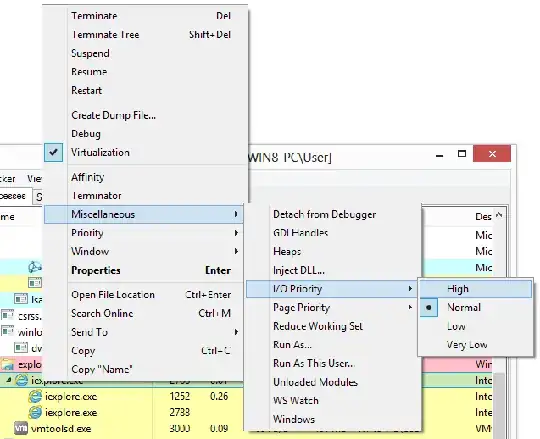I'm running a defrag on a friend's laptop which is horribly fragmented and it is taking an age. Would killing any unnecessary running processes increase the speed of the defrag or is the bottleneck the HDD speed?
Regardless of the answer above, what can I do (if anything) to increase the speed of a disk defrag?
